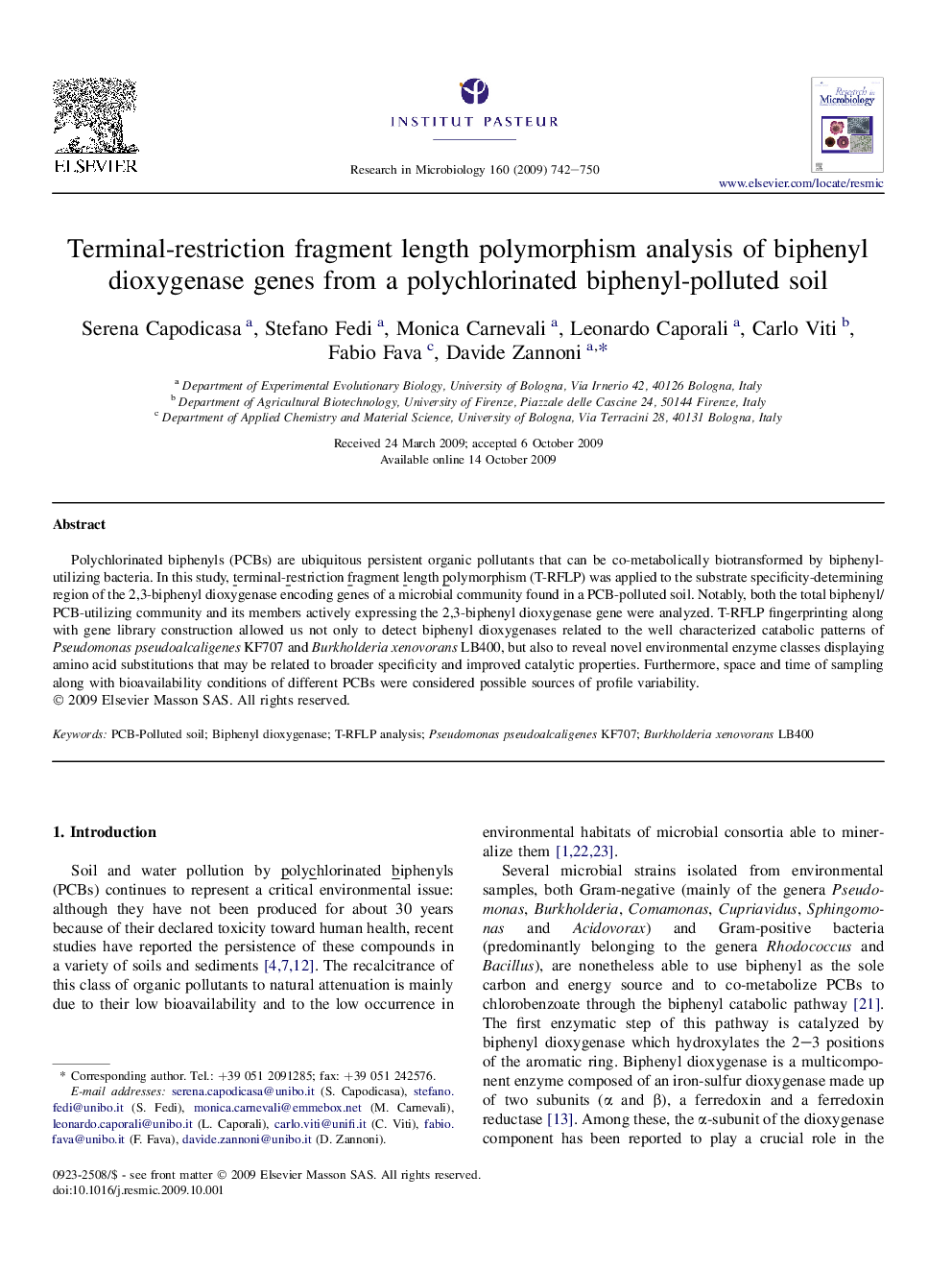| Article ID | Journal | Published Year | Pages | File Type |
|---|---|---|---|---|
| 4359022 | Research in Microbiology | 2009 | 9 Pages |
Abstract
Polychlorinated biphenyls (PCBs) are ubiquitous persistent organic pollutants that can be co-metabolically biotransformed by biphenyl-utilizing bacteria. In this study, terminal-restriction fragment length polymorphism (T-RFLP) was applied to the substrate specificity-determining region of the 2,3-biphenyl dioxygenase encoding genes of a microbial community found in a PCB-polluted soil. Notably, both the total biphenyl/PCB-utilizing community and its members actively expressing the 2,3-biphenyl dioxygenase gene were analyzed. T-RFLP fingerprinting along with gene library construction allowed us not only to detect biphenyl dioxygenases related to the well characterized catabolic patterns of Pseudomonas pseudoalcaligenes KF707 and Burkholderia xenovorans LB400, but also to reveal novel environmental enzyme classes displaying amino acid substitutions that may be related to broader specificity and improved catalytic properties. Furthermore, space and time of sampling along with bioavailability conditions of different PCBs were considered possible sources of profile variability.
Related Topics
Life Sciences
Immunology and Microbiology
Applied Microbiology and Biotechnology
Authors
Serena Capodicasa, Stefano Fedi, Monica Carnevali, Leonardo Caporali, Carlo Viti, Fabio Fava, Davide Zannoni,
